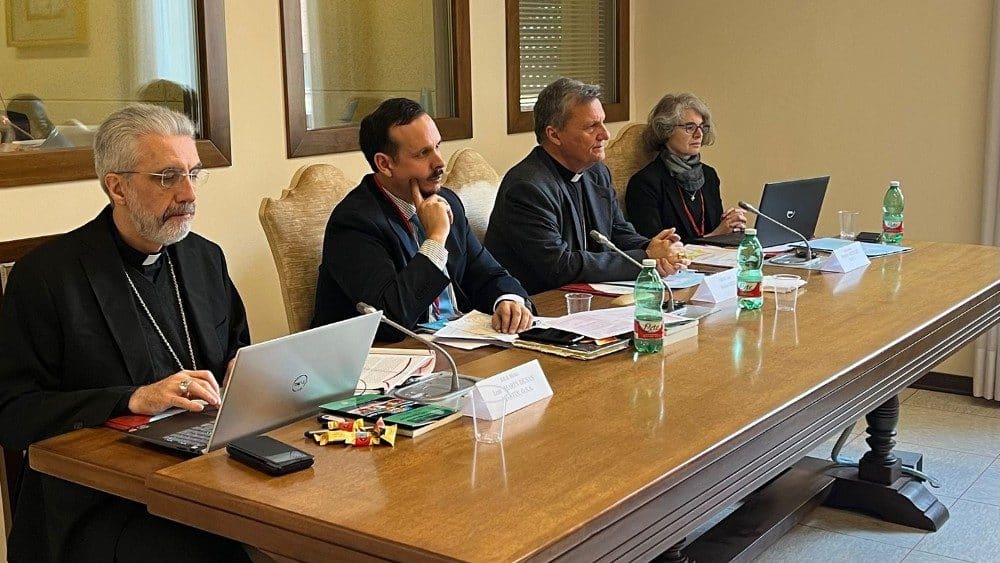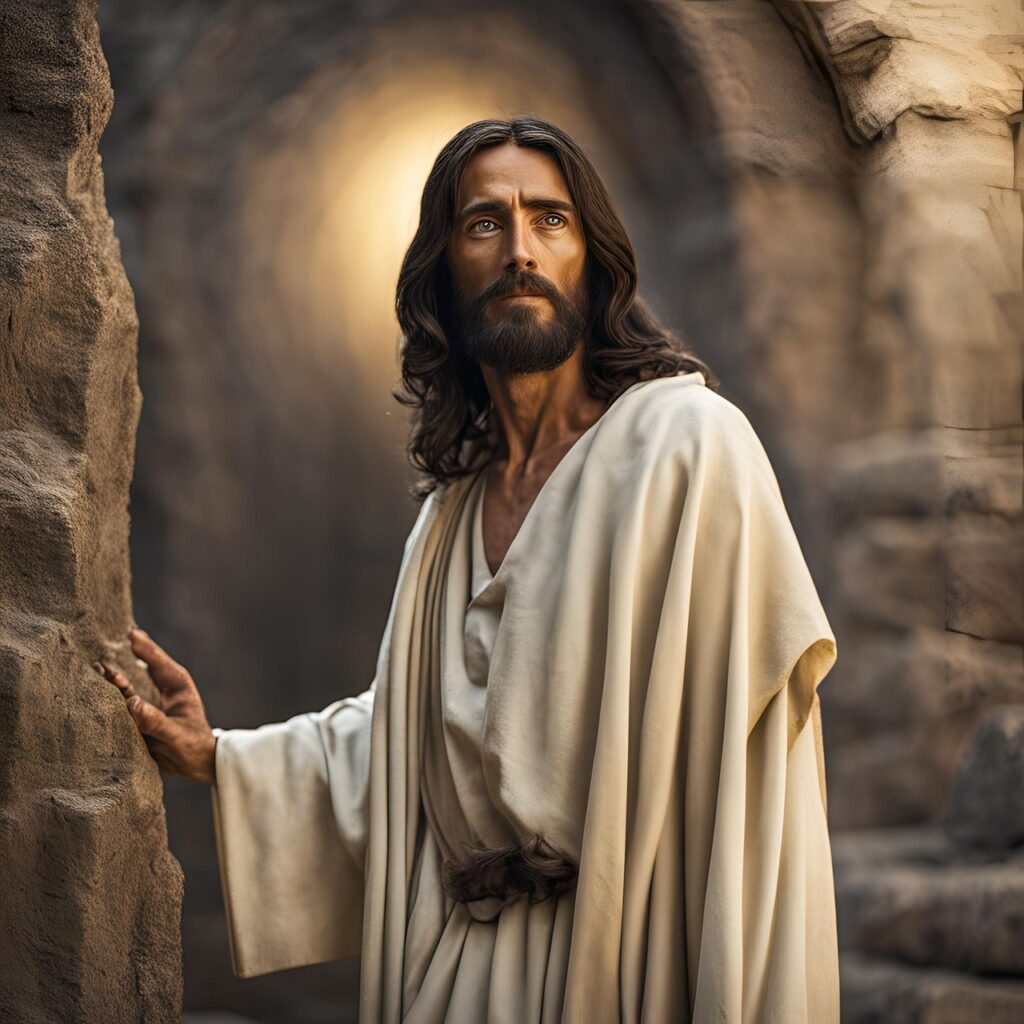For a synodal and missionary Church, the steps towards Synod 2024
Cardinals Grech and Hollerich write to the bishops of the world outlining the work steps for the coming months, given next year's assembly

The work of the Synod on Synodality continues in view of the concluding session in October 2024, and the Churches are called to reflect on the synthesis document published last October, to promote further consultations and to prepare contributions for next year’s work. Bishops from around the world have received from the Synod secretariat a four-page document accompanied by a letter from Cardinals Mario Grech (secretary general) and Jean-Claude Hollerich (general rapporteur).
The document first underlines the importance of the experience lived by the members of the Synod, recalling that “their account can convey the richness of an experience which no text can condense and which, on the other hand, constitutes an inalienable part of the gift we have received”. It is then explained that the synodal process will follow certain lines. It is specified, quoting words spoken by Pope Francis when approving this document, that “the Synod is about synodality and not about one topic or another…. The important thing is how the reflection is done, that is to say, in a synodal way”.
About each of the themes that have emerged so far, the document underlines that some of them “must be dealt with at the level of the whole Church and in collaboration with the Dicasteries of the Roman Curia, such as, for example, the preliminary study to update” the Code of Canon Law, the Ratio fundamentalis on the formation of ordained ministers, or the deepening of theological and pastoral research on the diaconate and the access of women to the diaconate. “As a fruit of the work of a Synodal Assembly, a list of these topics will be presented to the Holy Father. On those he indicates, groups of experts from all continents will be convened to work, with the involvement of the competent Dicasteries of the Roman Curia, in an ecclesial dynamisation coordinated by the General Secretariat of the Synod”. A progress report on this work will be presented at the October 2024 session.
The fundamental question indicated for the continuation of the work is: “How to be a synodal Church in the mission”. The aim is to identify the paths to follow and the instruments to adapt to “enhance the originality of each baptised person and of each Church in the unique mission of proclaiming the Risen Lord and his Gospel to today’s world”. It is not, therefore,” the document affirms, “a question of limiting ourselves to the plan of technical or procedural improvements which will make the structures of the Church more effective, but of working on the concrete forms of missionary commitment to which we are called, in the dynamism between unity and diversity proper to a synodal Church”.
In this regard, number 27 of Evangelii Gaudium, the pontificate’s programmatic text, is quoted: “I dream of a missionary option capable of transforming everything, so that customs, styles, timetables, language and every ecclesial structure become a suitable channel for the evangelisation of today’s world, rather than for self-preservation. The reform of structures, which demands a pastoral conversion, can only be understood in this sense: to see to it that all structures become more missionary…”.
The guiding question will be addressed at two levels, always taking the Synthesis Report as a reference. At the level of the local Churches, how can the differentiated co-responsibility in the mission of all the members of the People of God be strengthened? What forms of relationships, structures, processes of discernment, and decision-making about mission make it possible to recognise, shape and promote it? What ministries and organs of participation can be renewed or introduced to better express this co-responsibility? On the level of relations between the Churches and the relationship with the Bishop of Rome, how can “these relations be creatively articulated to find a dynamic balance between the dimension of the Church as a whole and its local roots”? Based on the guiding question and the two levels indicated above, each local Church is invited to carry out a further consultation.
It is not, however, the document explains, “a question of starting again from scratch or repeating the process of listening and consultation that characterised the first stage. At this stage, in addition to the participatory bodies at diocesan level and the synodal team already constituted, it will be important to involve people and groups who express a variety of experiences, competencies, charisms, ministries within the People of God and whose point of view is particularly useful in focusing on the “how”. Expert theologians and canonists, as well as academic institutions in the field, are invited to participate.
After collecting the contributions of the dioceses, the Bishops’ Conferences “have the task of preparing a summary of a maximum length of 8 pages, to be sent to the General Secretariat of the Synod by 15 May 2024. On the basis of the material thus collected, the Instrumentum laboris of the Second Session will be drafted”. The local Churches are also invited “to go through the entire Synthesis Report and to collect the requests most appropriate to their situation”. On this basis, “they will be able to promote the most appropriate initiatives to involve the whole people of God (formative activities, theological deepening, synodal-style celebrations, grassroots consultations, listening to minority populations and groups living in conditions of poverty and social marginalisation, spaces in which to address controversial issues, etc.)”. Each local Church which so wishes may send to the Bishops’ Conference “a brief testimony of the work done, and the experiences lived (maximum two pages), sharing a good practice which it considers significant for the growth of a missionary synodal dynamism”.
Finally, the document asks the Bishops’ Conferences to accompany this process and to take care of the deepening of the guiding question also at the level of the groupings of Churches, in order to elaborate the synthesis of the contributions received or elaborated. And with regard to the commitment to keep the synodal dynamism alive, the Episcopal Conferences are asked to continue to promote initiatives to grow as a synodal Church in mission also at the level of the groups of Churches; to collect testimonies and good practices and to send them all, without synthesising them, to the General Secretariat of the Synod, also before 15 May.
Related

Reflection by Bishop Enrique Díaz: The Lord’s mercy is eternal. Alleluia
Enrique Díaz
27 April, 2025
5 min

After Eight Days Jesus Arrived: Commentary by Fr. Jorge Miró
Jorge Miró
26 April, 2025
3 min

The Perspectivas del Trabajo Foundation is founded with the aim of promoting virtues for professional development
Exaudi Staff
25 April, 2025
2 min

Reflection by Bishop Enrique Díaz: Alleluia, alleluia
Enrique Díaz
20 April, 2025
5 min
 (EN)
(EN)
 (ES)
(ES)
 (IT)
(IT)

